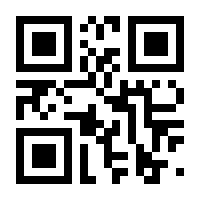
×
![Buchcover ISBN 9781118723173]()
„... the second edition is a substantial improvement on what was already a valuable, well structured and comprehensive reference...“ (Biometrics, September 2007)
Statistical Methods in Spatial Epidemiology
von Andrew B. LawsonSpatial epidemiology is the description and analysis of thegeographical distribution of disease. It is more important now thanever, with modern threats such as bio-terrorism making suchanalysis even more complex. This second edition of StatisticalMethods in Spatial Epidemiology is updated and expanded tooffer a complete coverage of the analysis and application ofspatial statistical methods. The book is divided into two mainsections: Part 1 introduces basic definitions and terminology, along with map construction and some basic models. This is expandedupon in Part II by applying this knowledge to the fundamentalproblems within spatial epidemiology, such as diseasemapping, ecological analysis, disease clustering, bio-terrorism, space-time analysis, surveillance and infectious disease modelling.
* Provides a comprehensive overview of the main statisticalmethods used in spatial epidemiology.
* Updated to include a new emphasis on bio-terrorism and diseasesurveillance.
* Emphasizes the importance of space-time modelling and outlinesthe practical application of the method.
* Discusses the wide range of software available for analyzingspatial data, including WinBUGS, SaTScan and R, and features anaccompanying website hosting related software.
* Contains numerous data sets, each representing a differentapproach to the analysis, and provides an insight into variousmodelling techniques.
This text is primarily aimed at medical statisticians, researchers and practitioners from public health and epidemiology. It is also suitable for postgraduate students of statistics andepidemiology, as well professionals working in governmentagencies.
* Provides a comprehensive overview of the main statisticalmethods used in spatial epidemiology.
* Updated to include a new emphasis on bio-terrorism and diseasesurveillance.
* Emphasizes the importance of space-time modelling and outlinesthe practical application of the method.
* Discusses the wide range of software available for analyzingspatial data, including WinBUGS, SaTScan and R, and features anaccompanying website hosting related software.
* Contains numerous data sets, each representing a differentapproach to the analysis, and provides an insight into variousmodelling techniques.
This text is primarily aimed at medical statisticians, researchers and practitioners from public health and epidemiology. It is also suitable for postgraduate students of statistics andepidemiology, as well professionals working in governmentagencies.



